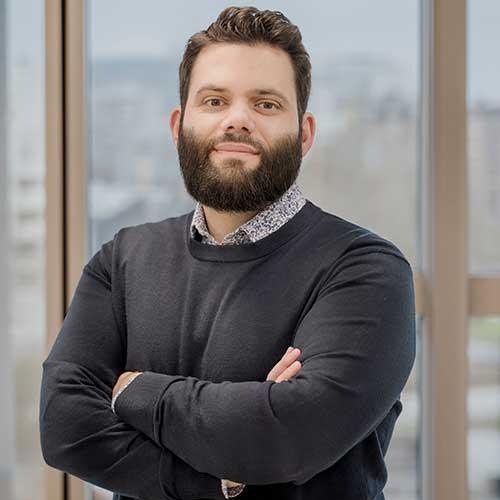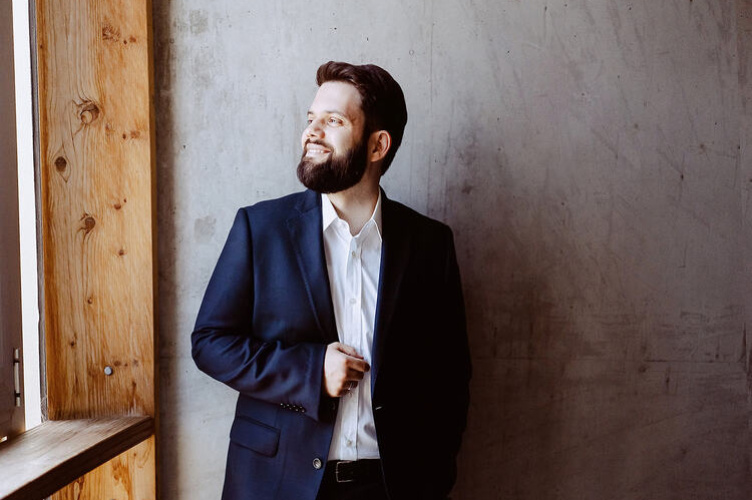Interview with ESCP’s Associate Dean of Sustainability, Prof. Gorgi Krlev
In a time when sustainability is as politicised as it is pressing, the question for higher education is no longer whether to act—but how and how fast. At ESCP Business School, that responsibility now falls to Professor Gorgi Krlev, appointed in fall 2024 as the institution’s Associate Dean of Sustainability, a role focused on advancing curriculum transformation, reducing ESCP’s carbon footprint, and strengthening sustainable, inclusive governance.
Professor Krlev, a recognised leader in social innovation, systems thinking, and impact measurement, brings both strategic vision and deep academic expertise to the role. The deanship, he notes, provides him with the authorisation and institutional force to align ambition with execution. “I’ve always pursued an impact-driven agenda, even when it was difficult. Now I get to do it with the backing of the institution.”
That support matters more than ever, he believes, as society grapples with everything from climate breakdown to a rising distrust in science. “What we’re witnessing is not just an environmental crisis—it’s a crisis of knowledge, of credibility. The stakes for education have never been higher.”
Despite the difficulty of the current moment, Krlev sees a silver lining. “The current situation forces us to take a stand,” he says—and that’s exactly what ESCP is doing through initiatives like Stand Up For Science, which affirms the school’s commitment to defending knowledge, academic freedom, and the core values that shape open, inclusive, and democratic societies.
There’s no middle ground anymore where you just stay neutral and agree in principle but leave the action to others.
 Prof. Gorgi Krlev
Prof. Gorgi KrlevAssociate Dean of Sustainability
ESCP Business School
From measurement to impact
“What gets measured gets managed,” says Krlev. “It’s a cliché but still true.” For ESCP, the recent calculation of its carbon footprint marked a turning point: a baseline from which to shape action plans, reduction targets, and concrete interventions. “Now, we can set real reduction targets, invest in more effective actions, and build a strategy that evolves.”
Still, Krlev is cautious that an overreliance on perfect information could limit action and stifle innovation. “We must avoid the trap of trying to understand things perfectly before acting,” he says. “Innovation and legislative shifts—like incentivising low-carbon products—shouldn’t wait for perfect models.”
What is necessary to move from awareness to transformation? For Krlev, two ideas stand out. “Sustainability must be made more convenient—for businesses, governments, and citizens alike. When sustainable options become the easier ones, change follows.” Moreover, transitions fail without social cohesion. “We need new narratives that people can relate to. And we must buffer the social impacts of change so that communities feel empowered—not excluded.” Without this balance, he warns, change risks becoming polarising rather than participatory.
A new blueprint for sustainability in business education
Programmes such as the MSc in International Sustainability Management and the MSc in Sustainability Entrepreneurship & Innovation already reflect ESCP’s commitment to embedding sustainability at the heart of business education. One of Krlev’s ambitions is to create what he calls a “sustainability fingerprint” across all ESCP programmes—from the Bachelor in Management to the Executive MBA. Already, 100% of students receive training in sustainability, but Krlev wants to flip the framing entirely. "Sustainability should not be a complement. It should be the core through which we teach finance, marketing, or economics."
Sustainability should not be a complement. It should be the core through which we teach finance, marketing, or economics.
At ESCP, faculty are being actively engaged in a wave of educational innovation, with new project-based formats that bring students into collaboration with civic groups, startups, and corporations alike. It’s a way of instilling not just knowledge but the capabilities he believes tomorrow’s leaders will need: systems thinking, critical debate, comfort with complexity, and a commitment to impact.
These ambitions are reflected in the innovative pedagogical approaches embraced at ESCP. For example, through the TRANSFORM platform—which earned Krlev the Financial Times Responsible Business Education Award—students tackle important sustainability challenges and develop new ideas for how startups, NGOs, and public institutions across Europe and beyond could address them.
In research, the ESCP Sustainability Institute fosters innovative research and education in sustainability management, shaping insights that inform policy and practice. It works closely with the ESCP Research Centre on Environmental and Societal Transitions (RESET), which addresses some of the most urgent challenges of our time—advancing research on topics ranging from corporate sustainability models to the future of growth within planetary boundaries.
Leading the next chapter in sustainability at ESCP
Krlev is under no illusions about the monumental scale of his mission. “To advance sustainability, we need to do everything, everywhere, all at once,” he says. Beyond curriculum transformation, the school is enhancing green mobility practices, building a new higher education alliance for sustainability, and launching a High-Level Advisory Council to explore key sustainability challenges, ensure accountability through external oversight, and drive collective action through strategic collaboration and thought leadership.
This work will be highlighted at ChangeNOW 2025, where ESCP—a formal partner of the climate change solutions summit this year—will unveil new initiatives that bridge education, research, and systemic change.
The task is enormous, and the timeline is urgent. But Krlev isn’t looking for easy answers. He’s looking for better questions—and to engage a community ready to lead the charge. "We’ve spent decades teaching people how to succeed in the system. Now we have to ask: what if your job is to change the system?"
We’ve spent decades teaching people how to succeed in the system. Now we have to ask: what if your job is to change the system?
Campuses
